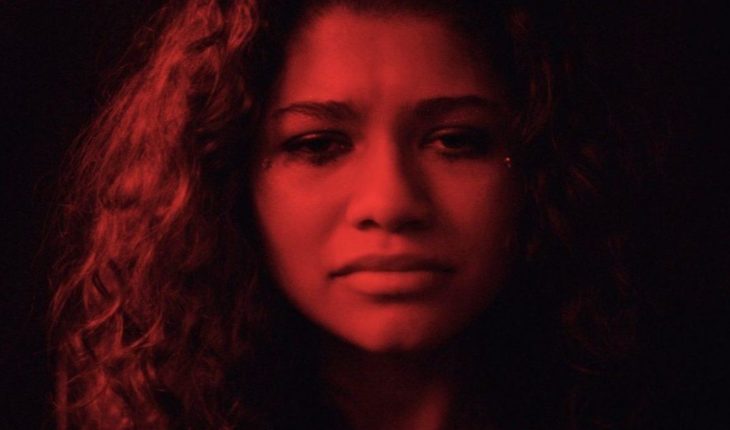Have you seen “Euphoria”? HBO’s latest drama gets into the life (and little head) of a group of high school students who are transiting adolescence surrounded by drugs, violence, sexual experiences, and the constant influence of technology that seems to dominate their day-to-day lives. Its creator, Sam Levinson, does not walk around with little girls, giving up a story often difficult to look at and assimilate because of its themes and its explicitness, but well it has its reasons. In his own words, “Euphoria” is a much more ’emotional’ and not so much ‘intellectual’ work, a kind of catharsis that draws attention from his subjects, yes, but also from his forms: his ideas, images and narrative that introduce different resources such as the voiceover, almost surreal animated sequences or the constant change of view. Thus, the series starring Zendaya, in the role of Rue Bennett, runs from the common places of this kind of teenage tale, and the conventions that are used when it comes to bringing them to the screen.
Here, the general idea is to “break all the rules that can be” on one side and the other of the camera: “Just because that’s how we consume the stories or the way we follow the narratives, at this particular moment everything seems random and goal. I felt that breaking traditional narratives was the perfect way to tell the story. Breaking the fourth wall, (and) the voiceover that changes from first person to omniscient, was just a part of the DNA of all this. And we try not to be afraid about it,” says the writer, director and producer, whose personal experiences were a turning point in delineating this uncompromising drama, based on the Eponymous Israeli series.
“I spent most of my adolescence in hospitals, rehabilitation centers and recovery homes. At some point, around the age of 16, I resigned myself to the idea that, over time, drugs would kill me and there was no reason to fight. I’d let them take over, I’d already made up with that.”
At 19, on one of his many visits to rehabilitation (in this case, to trade opiates for drugs “more productive like methamphetamines”), Sam discovered a phrase that would change his life definitively, taking that artistic path that he could not reach out in a different way. The quote in question – “In the end, we are but an amalgam of our actions and that is, ultimately, what defines us” – he shook his ideas forever when he realized that, if that was his last day on the face of the earth , would only be remembered as a thief and a drug addict who abused the people who loved them.
Youth, divine treasure
The little voice in his head was as clear as water, as the filmmaker has been ‘clean’ for more than 14 years. In this case, a happy ending that is not always consistent with what happens on the screen. The young protagonists agree on the show’s rawness about the graphic representation of teenage life, but always emphasizing the honesty of the characters when focusing on such sensitive topics as addictions or relationships Volatile. A little extreme, perhaps, but in his eyes, necessary, since they were often frightened by the environment and the social pressure that does not always allow to externalize certain themes and emotions Is “Euphoria” the definitive series about adolescence? Possibly not, but it all helps the deconstruction that Levinson raises chapter by chapter. In this note:





